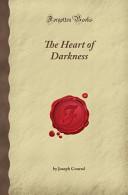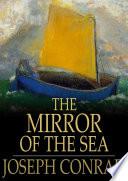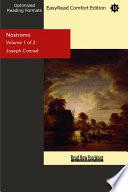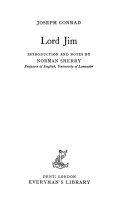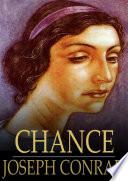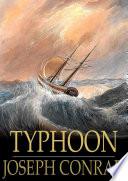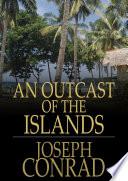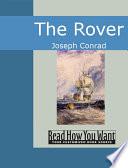“Being a woman is a terribly difficult trade since it consists principally of dealings with men.”
Source: Chance (1913) part II, Ch. 5
Joseph Conrad was a Polish-British writer regarded as one of the greatest novelists to write in the English language. He joined the British merchant marine in 1878, and was granted British nationality in 1886. Though he did not speak English fluently until his twenties, he was a master prose stylist who brought a non-English sensibility into English literature. He wrote stories and novels, many with a nautical setting, that depict trials of the human spirit in the midst of an impassive, inscrutable universe.
Conrad is considered an early modernist, though his works still contain elements of 19th-century realism. His narrative style and anti-heroic characters have influenced many authors, including F. Scott Fitzgerald, William Faulkner, Ernest Hemingway, André Malraux, George Orwell, Graham Greene, Gabriel García Márquez, John le Carré, V. S. Naipaul, Philip Roth, J. M. Coetzee, and Salman Rushdie. Many films have been adapted from, or inspired by, Conrad's works.
Writing in the heyday of the British Empire, Conrad drew on, among other things, his native Poland's national experiences and his own experiences in the French and British merchant navies, to create short stories and novels that reflect aspects of a European-dominated world—including imperialism and colonialism—and that profoundly explore the human psyche.

“Being a woman is a terribly difficult trade since it consists principally of dealings with men.”
Source: Chance (1913) part II, Ch. 5
“We live as we dream - alone. While the dream disappears, the life continues painfully.”
Source: Heart of Darkness
“The sea has never been friendly to man. At most it has been the accomplice of human restlessness.”
Source: The Mirror of the Sea (1906), Ch. 35
Context: For all that has been said of the love that certain natures (on shore) have professed to feel for it, for all the celebrations it had been the object of in prose and song, the sea has never been friendly to man. At most it has been the accomplice of human restlessness.
“It's only those who do nothing that make no mistakes, I suppose.”
Source: An Outcast of the Islands (1896), Pt. 3, Ch. 2; possibly an adaptation of a Polish proverb, "Ten się nie myli, kto nic nie robi" — "One is not wrong, who does nothing."
Pt. II, ch. 4
Source: Under Western Eyes (1911)
“I take it that what all men are really after is some form or perhaps only some formula of peace.”
Pt. I
Under Western Eyes (1911)
Source: The Mirror of the Sea (1906), Ch. 17
Hope Point to Tilbury / Gravesend
The Mirror of the Sea (1906), On the River Thames, Ch. 16
“Facing it — always facing it — that's the way to get through.”
Typhoon (1902), Ch. 5
Letter (March 1890), published in The Collected Letters of Joseph Conrad, edited by Frederick R. Karl and Laurence Davies, Vol. 1, p. 43 ISBN 0521242169
Command at Sea: the Prestige, Privilege and Burden of Command
“We live as we dream--alone….”
Source: Heart of Darkness
Source: The Secret Sharer and other stories
Variant: My task is to make you hear, to make you feel, and, above all, to make you see. That is all, and it is everything.
Source: Lord Jim
Source: Heart of Darkness
Source: The Secret Agent (1907), Ch. 3
Context: All idealization makes life poorer. To beautify it is to take away its character of complexity — it is to destroy it. Leave that to the moralists, my boy. History is made by men, but they do not make it in their heads. The ideas that are born in their consciousness play an insignificant part in the march of events. History is dominated and determined by the tool and the production — by the force of economic conditions. Capitalism has made socialism, and the laws made by the capitalist for the protection of property are responsible for anarchism. No one can tell what form the social organisation may take in the future. Then why indulge in prophetic phantasies? At best they can only interpret the mind of the prophet, and can have no objective value. Leave that pastime to the moralists, my boy.
“The mind of man is capable of anything.”
Source: Heart of Darkness
“All passion is lost now. The world is mediocre, limp, without force.”
Source: The Secret Agent (1907), Ch. 13
Context: All passion is lost now. The world is mediocre, limp, without force. And madness and despair are a force. And force is a crime in the eyes of the fools, the weak and the silly who rule the roost. You are mediocre. Verloc, whose affair the police has managed to smother so nicely, was mediocre. And the police murdered him. He was mediocre. Everybody is mediocre. Madness and despair! Give me that for a lever, and I'll move the world. Ossipon, you have my cordial scorn. You are incapable of conceiving even what the fat-fed citizen would call a crime. You have no force.
Pt. I
Under Western Eyes (1911)
Context: Words, as is well known, are the great foes of reality. I have been for many years a teacher of languages. It is an occupation which at length becomes fatal to whatever share of imagination, observation, and insight an ordinary person may be heir to. To a teacher of languages there comes a time when the world is but a place of many words and man appears a mere talking animal not much more wonderful than a parrot.
“Perhaps life is just that… a dream and a fear.”
Pt. IV, ch. 2
Under Western Eyes (1911)
“Like a running blaze on a plain, like a flash of lightning in the clouds. We live in the flicker.”
Source: Heart of Darkness
Source: Heart of Darkness
“He hated all this, and somehow he couldn't get away.”
Source: Heart of Darkness
“Words, as is well known, are the great foes of reality.”
Pt. I
Source: Under Western Eyes (1911)
Context: Words, as is well known, are the great foes of reality. I have been for many years a teacher of languages. It is an occupation which at length becomes fatal to whatever share of imagination, observation, and insight an ordinary person may be heir to. To a teacher of languages there comes a time when the world is but a place of many words and man appears a mere talking animal not much more wonderful than a parrot.
“Gossip is what no one claims to like, but everybody enjoys.”
Variant: Gossip is what no one claims to like – but everybody enjoys.
Source: Heart of Darkness
“And this also," said Marlow suddenly, "has been one of the dark places of the earth.”
Source: Heart of Darkness
Source: Heart of Darkness
“I have a voice, too, and for good or evil mine is the speech that cannot be silenced”
Source: Heart of Darkness
Source: Heart of Darkness
“His face was like the autumn sky, overcast one moment and bright the next.”
Source: Heart of Darkness
Source: The Mirror of the Sea (1906), Ch. 26
Letter to Robert Cunninghame-Graham (January 1898), published in The Collected Letters of Joseph Conrad, edited by Frederick R. Karl and Laurence Davies, Vol. 2, p. 30. ISBN 0521257484
“In plucking the fruit of memory one runs the risk of spoiling its bloom.”
The Arrow of Gold http://www.gutenberg.org/dirs/etext97/argld10h.htm (1919), Author's note,
